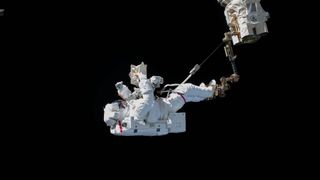gravity
Latest about gravity

Time moves faster on Mars, posing new challenges to crewed missions
By Deepa Jain published
Clocks on Mars tick faster by about 477 microseconds each Earth day, a new study suggests. This difference is significantly more than that for our moon, posing potential challenges for future crewed missions.
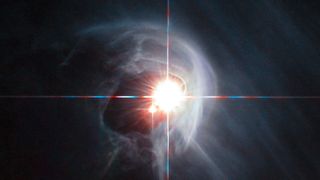
Two stars spiraling toward catastrophe are putting Einstein's gravity to the test
By Paul Sutter published
The two stars in the nearby system ZTF J2130 are spiraling toward a catastrophic supernova. In the meantime, scientists are using the pair's slow orbital decay to put Einstein's theory of gravity to the test.
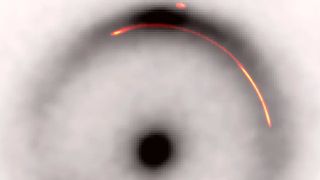
Record-breaking 'dark object' found hiding within a warped 'Einstein ring' 10 billion light-years away
By Harry Baker published
Researchers have found a suspected clump of dark matter lurking within the luminous halo of a well-known "Einstein ring." The mysterious object, the smallest of its kind ever seen, could help shed light on the universe's missing matter.
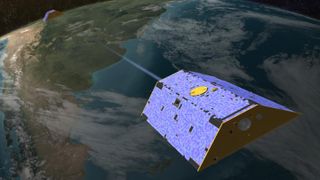
Satellites detected strange gravity signal coming from deep within Earth almost 20 years ago, study reveals
By Patrick Pester published
Researchers have discovered there was an anomaly in Earth's gravitational field between 2006 and 2008, potentially caused by a mineral shift deep within Earth's mantle. GRACE satellites detected a strange gravity signal at the time.
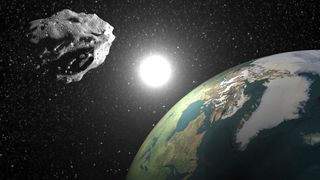
New 'quasi-moon' discovered in Earth orbit may have been hiding there for decades
By Elizabeth Howell published
A near-Earth asteroid lurked undetected for decades until a telescope in Hawaii spotted it earlier this year. It may be Earth's newest quasi-moon.
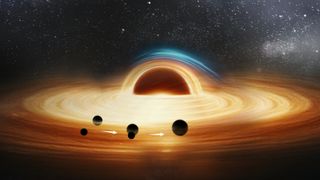
Scientists think they detected the first known triple black hole system in the universe — and then watched it die
By Harry Baker published
Chinese astronomers have spotted a hidden supermassive black hole in the background of a peculiar gravitational wave event from a black hole merger, hinting that all three singularities were locked in a never-before-seen triple system.
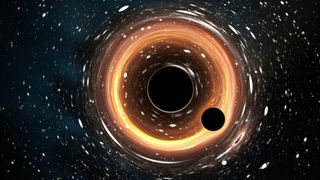
Scientists use Stephen Hawking theory to propose 'black hole morsels' — strange, compact objects that could reveal new physics
By Andrey Feldman published
Violent black hole collisions may create black hole 'morsels' no larger than an asteroid — and these bizarre objects could pave the way to unlocking new physics, a study claims.
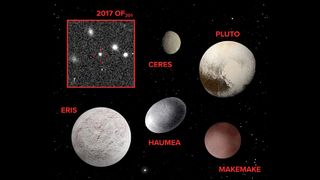
New dwarf planet discovered beyond the orbit of Neptune
By Skyler Ware published
Astronomers have announced the discovery of a new dwarf planet in our solar system, named 2017 OF201. Located far beyond Neptune, it orbits the sun every 25,000 years.
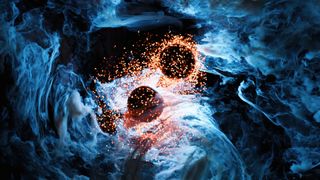
Physicists take step toward a 'theory of everything'
By Andrey Feldman published
A new physics paper takes a step toward creating a long-sought "theory of everything" by uniting gravity with the quantum world. However, the new theory remains far from being proven observationally.
Get the world’s most fascinating discoveries delivered straight to your inbox.


